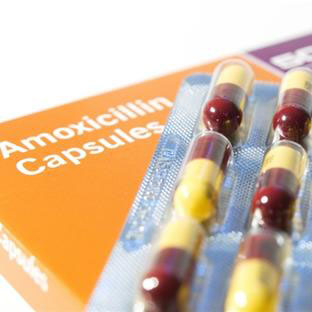GPs should be referred to GMC for persistently over-prescribing antibiotics, says NICE

GPs who persistently prescribe antibiotics inappropriately should be referred to the GMC and face sanctions under new measures to systematically monitor their individual prescribing of antimicrobials, NICE experts have said.
The threat came as NICE published final guidance on antimicrobial stewardship, recommending GPs have their individual antibiotic prescribing monitored and reviewed at least once a year.
The guideline recommends ‘local systems and processes for peer review of prescribing’ to ‘encourage a culture’ where colleagues question one another where their prescribing practices are ‘not in line with… guidelines and no reason is documented’.
Professor Mark Baker, director of the centre for clinical practice at NICE, explained this could mean that most inappropriate prescribing of antibiotics could be dealt through GPs’ normal appraisal and continuing professional development and a minority of ‘persistent offenders’ could face referral to the GMC and sanctions.
However, the RCGP warned it could be ‘counter-productive’ to threaten hard-pressed GPs with sanctions for inappropriate prescribing.
The guidelines were unveiled in draft form earlier this year and recommend local ‘antimicrobial stewardship teams’ review and provide regular feedback on individual GPs’ prescribing data, as well as local antibiotic resistance rates, to try to tackle areas where inappropriate prescribing is driving the development of resistance.
NICE said it developed the guidance following continuing unexplained growth in antibiotic prescribing, and in line with the Government’s strategy for tackling the threat of antimicrobial resistance – through which public health officials have said GPs should face targets on antibiotic prescribing through the QOF or other contractual measures. GPs in some areas are already being given locally agreed targets as part of their CCG’s quality premium measures.
However, the draft came under criticism after GPs pointed out it would be technically impossible to monitor individual prescriber data under the current system, and called for wider efforts to tackle antimicrobial resistance including better education for the public.
Related articles
GP practices face further pressure to reduce antibiotic prescribing
NICE plans for GP antibiotic prescribing reports branded ‘pointless’
GPs should be given individual reports on their antibiotic prescribing, recommends NICE
The final NICE recommendations remain largely unchanged from draft, but NICE experts have now revealed that they expect the local stewardship teams to feed the data into the revalidation process and pick up those GPs who are ‘outliers’.
Professor Baker told Pulse: ‘If the measures we’re proposing are put in place, then the prescribing of antimicrobials practiced by every practitioner will be available to form part of their annual appraisal documentation – and outliers can be identified and in some cases will be taken further at a local level.’
Professor Baker added: ‘For “persistent offenders” the ultimate sanction would be a referral to the GMC under its performance procedures. But it’s only very rarely that they ever get to a panel as the vast majority of doctors are wise enough to change their practice before it gets that far.’
Mr Niall Dickson, chief executive of the GMC, said that annual appraisals, as part of the revalidation cycle, offer a ‘valuable opportunity’ for GPs to reflect on all aspects of practice including their prescribing – and that ‘we would expect that doctors would undertake any further training that might be identified as part of that process’.
Mr Dickson added: ‘Doctors can, and do, face sanctions for mis-prescribing, although the law dictates that each case has to be considered on its merits to determine whether the doctor’s actions pose a risk to patients or confidence in doctors.’
However Professor Tim Ballard, vice chair of the RCGP said a ‘societal change’ was needed towards the use of antibiotics and that ‘any suggestion that hard pressed GPs – who are already trying to do their jobs in increasingly difficult circumstances – will be reported to the regulator is counter-productive and unhelpful’.
Professor Ballard added: ‘If this were to happen, we would be looking to the General Medical Council to support any GP or other health professional who finds themselves on the receiving end of complaints or criticism about decisions made over the prescribing of antibiotics.’
Unsure of the best methods for reducing antibiotic prescribing? Pulse Learning offers tips (£) on how you can implement evidence-based strategies in practice.
Pulse July survey
Take our July 2025 survey to potentially win £1.000 worth of tokens

Visit Pulse Reference for details on 140 symptoms, including easily searchable symptoms and categories, offering you a free platform to check symptoms and receive potential diagnoses during consultations.











